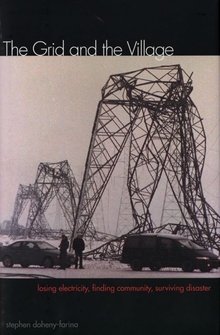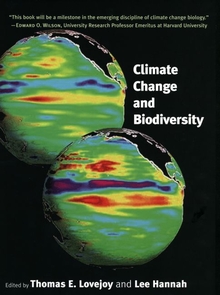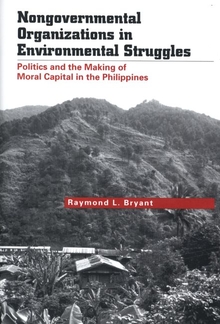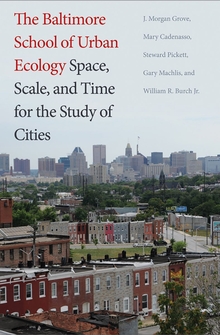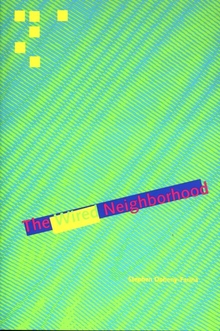The Grid and the Village
WARNING
You are viewing an older version of the Yalebooks website. Please visit out new website with more updated information and a better user experience: https://www.yalebooks.com
Losing Electricity, Finding Community, Surviving Disaster
Stephen Doheny-Farina
In January 1998 a massive ice storm descended on New York, New England, and eastern Canada. It crushed power grids from the Great Lakes to the North Atlantic, forcing thousands of people into public shelters and leaving millions of others in their homes without electricity. In this riveting book Stephen Doheny-Farina presents an insider’s account of these events, describing the destruction of the electric network in his own village and the emergence of the face-to-face interactions that took its place. His stories examine the impact of electronic communications on community, illuminating the relationship between electronic and human connections and between networks and neighborhoods, and exploring why and how media portrayals of disasters can distort authentic experience.
Doheny-Farina begins by discussing the disaster and tracing the origins of the storm. He then goes back two hundred years to tell how this particular electric grid was built, showing us the sacrifices people made to create the grids that (usually) connect us to one another. Today’s power grid, says Doheny-Farina, has become more vulnerable than we realize, as demand begins to outstrip capacity in urban centers around the nation. His book reminds us what those grids mean—both positively and negatively—to our electronically saturated lives.
Doheny-Farina begins by discussing the disaster and tracing the origins of the storm. He then goes back two hundred years to tell how this particular electric grid was built, showing us the sacrifices people made to create the grids that (usually) connect us to one another. Today’s power grid, says Doheny-Farina, has become more vulnerable than we realize, as demand begins to outstrip capacity in urban centers around the nation. His book reminds us what those grids mean—both positively and negatively—to our electronically saturated lives.
Stephen Doheny-Farina, professor of technical communications at Clarkson University, is also the author of The Wired Neighborhood, published by Yale University Press. He is a frequent commentator on new kinds of media communications in newspapers, magazines, radio, and Web sites.
"An important undertaking that connects social studies of technology, media criticism, and historical commentary. An appealing read."—Laura J. Gurak, author of Persuasion and Privacy in Cyberspace
“An enjoyable exploration of the complex relationship between a man, his town, and their moments of crisis, and the way this is reflected in the media.”—Robert Krulwich, correspondent, ABC News
“Some of us write about the financiers, politicians, and other big wigs who fashioned the huge, interconnected electric power system. Stephen Doheny-Farina, on the other hand, has crafted a fascinating tale describing everyday individuals whose lives and outlooks changed dramatically when that power system collapsed in 1998. Using cliff-hangers, an easy-going writing style, and a bit of historical fiction, he weaves a story that causes us to reassess our relationship to the technological infrastructure and to our social communities.”—Richard F. Hirsh, Professor of History of Technology and Science & Technology Studies, Virginia Tech, Blacksburg, VA, and author of Power Loss: The Origins of Deregulation and Restructuring in the American Electric Utility System
“That was one heck of a storm, and this is one heck of a book. Even for people who didn’t live through the North Country’s epic winter, it will raise profound questions about what it means to be plugged into the grid, and plugged into a community.”—Bill McKibben, author of Long Distance: A Year of Living Strenuously and The End of Nature
“[A] blending of top-drawer social criticism with a gripping firsthand account of the 1998 ice storm that shut down parts of New York, New England and Canada. . . . But this book’s great achievement rests not only on the author’s sympathetic storyteller’s eye, but also on his strikingly unique selection and ordering of information. His chapters are a weave of storm narrative, vignettes on the origin and evolution of the modern-day grid around Potsdam, and smart and notably self-aware riffs on the media’s dubious role in disaster, this book being one example. The author’s technique is as eye-opening as the sudden and complete leveling of a power grid by sheets of ice.”—Publishers Weekly
“This insightful book is . . . a combination of science and inspiration--a description of the destructive power of nature, a treatise on the workings and vulnerabilities of the power grids that control the distribution of electricity, and an affirmation of the power of a community to overcome seemingly insurmountable hardships. . . . Doheny-Farina’s . . . account will hold the interest of many general readers. He provides a wealth of fascinating technical information; he tells several touching and very human stories about individuals responding to a crisis; and he convincingly demonstrates the axiom that if we stick together, we can do pretty much anything.”—Booklist
ISBN: 9780300089776
Publication Date: August 11, 2001
Publication Date: August 11, 2001
224 pages, 5 1/2 x 8 1/4
6 b/w illus. + 1 map
6 b/w illus. + 1 map

